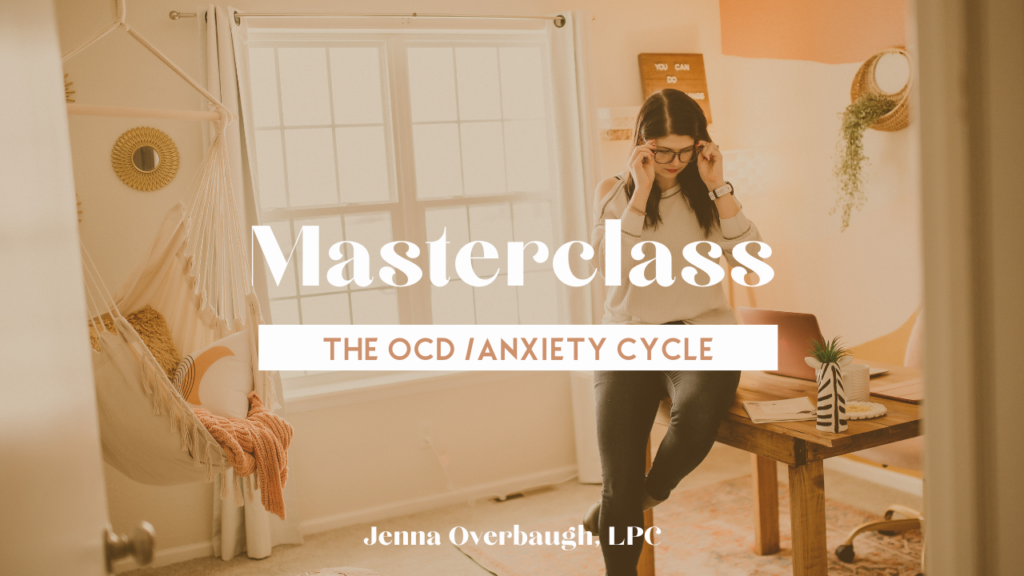Living with OCD and anxiety can feel like being trapped in a never-ending cycle of responsibility.
Whether it’s constantly checking the locks on your doors, avoiding certain places or people, or obsessing over whether you said the right thing, these conditions can make you feel like everything is your fault and that you are responsible for everyone and everything. This inflated sense of responsibility can lead to feelings of guilt, shame, and isolation. However, by recognizing this pattern and using evidence-based strategies, it’s possible to break free from this cycle.
The weight of responsibility
People with OCD and anxiety often have an inflated sense of responsibility. They feel that they are responsible for the safety and well-being of themselves and others, and that even the slightest mistake on their part could have catastrophic consequences. This hyper-responsibility can manifest in a variety of ways, such as:
- Fear of making a mistake
- Feeling guilty for things that are out of your control
- Difficulty delegating tasks to others
- Constantly seeking reassurance
- Excessive checking and monitoring
- Avoiding situations that trigger anxiety
The cycle of responsibility can be especially challenging because it can lead to compulsive behaviors that reinforce the belief that one is responsible for everything. You may feel like these compulsions are saving you from the worst case scenario, when, in reality, the worst case scenario was (probably) never going to happen in the first place. This can make it hard to recognize when these behaviors are actually making things worse.
Breaking the cycle of responsibility
One of the keys to breaking the cycle of responsibility is to reduce and resist safety behaviors, compulsions, and patterns of avoidance. These behaviors might make you feel better in the short term but just make your anxiety worse in the long run. By gradually reducing these safety behaviors, like seeking reassurance from others, avoiding scary situations, and constantly checking in on others regarding whether you made a mistake, you realize that your feared consequences weren’t actually that likely or catastrophic in the first place.
To take it a step further, Exposure and Response Prevention (ERP) is a type of therapy that involves gradually exposing oneself to feared situations or stimuli while resisting the urge to engage in compulsive behaviors. This can help individuals develop a greater sense of control over their anxiety and can help them recognize that their compulsions are not necessary for safety. In addition to reducing the safety behaviors mentioned above, it might also be helpful to put yourself outside of your comfort zone. In other words, ask yourself what are some of the things you typically avoid – and then find small, challenging, and manageable ways to go out of your way to do those things.
Conclusion
An inflated sense of responsibility can be a hallmark of OCD and anxiety, but it doesn’t have to control your life. That overwhelming sense of guilt and shame doesn’t have to follow you around forever. The strategies I teach in my masterclasses and on my podcast, “All The Hard Things”, can help you understand this inflated sense of responsibility better so you can start to tackle it in your own life.
You got this!!!
– Jenna
Want more content like this? Check out some of my related podcasts and masterclasses below.

This post is for informational purposes only and may not be the best fit for you and your personal situation. It shall not be construed as mental health or medical advice. The information and education provided here is not intended or implied to supplement or replace professional advice of your own professional mental health or medical treatment, advice, and/or diagnosis. Make sure to check with your own physician or mental health professional before trying or implementing anything read here.
© 2023 Jenna Overbaugh, LLC
most popular episodes
Love my podcast?
Episode 112: Postpartum OCD and False Memory OCD
Imagine how in depth I can go in an online course. Instantly downloadable and game-changing. Take the next step towards an amazing life.